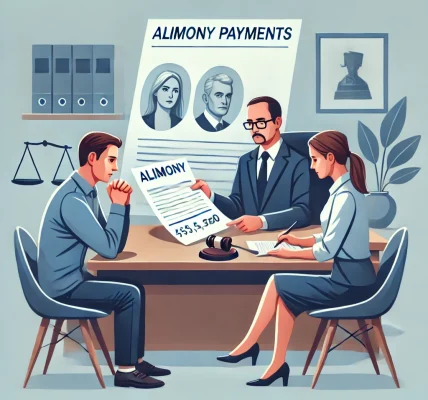Divorce is often perceived as a long and stressful legal battle fought in a courtroom. However, many couples are now choosing Alternative Dispute Resolution (ADR) methods to end their marriage amicably and efficiently without stepping into court. These methods not only save time and money but also promote cooperation and mutual respect.
This article explores various ADR methods, their benefits, and how to choose the best approach for your situation.
1. What Is Alternative Dispute Resolution (ADR) in Divorce?
Alternative Dispute Resolution refers to any process that helps divorcing couples resolve their disputes outside the traditional court system. The main ADR methods include:
- Mediation
- Collaborative Divorce
- Arbitration
- Negotiation
These methods aim to facilitate agreement on issues like child custody, property division, and spousal support without resorting to lengthy litigation.
2. Benefits of ADR in Divorce
Choosing an ADR method over litigation offers several advantages:
- Cost-effective: Avoids expensive court fees and attorney costs.
- Faster resolution: ADR methods can resolve disputes in months instead of years.
- Less stress: Encourages cooperation instead of confrontation.
- More privacy: Keeps personal matters out of public records.
- Greater control: Couples make their own decisions rather than a judge.
- Better for children: Reduces conflict, making co-parenting easier post-divorce.
3. Mediation: A Cooperative Approach
How It Works
Mediation involves a neutral third party (mediator) who helps the couple communicate and reach agreements on various aspects of their divorce.
Key Features of Mediation
- The mediator does not make decisions but facilitates discussions.
- Both spouses work together to reach a mutually acceptable settlement.
- Attorneys can advise clients but do not dominate discussions.
- Agreements made in mediation are legally binding once signed.
Who Should Consider Mediation?
Mediation is ideal for couples who:
- Can communicate respectfully.
- Want to maintain control over decisions.
- Prioritize their children’s well-being.
- Seek a cost-effective and time-saving process.
4. Collaborative Divorce: A Team-Based Solution
How It Works
In collaborative divorce, both spouses hire specially trained attorneys who work together to negotiate a fair settlement. Other professionals, such as financial advisors and child specialists, may be involved.
Key Features of Collaborative Divorce
- Both parties agree not to go to court.
- Full disclosure of financial and personal matters is required.
- Focuses on problem-solving rather than winning.
- A team of professionals assists in negotiations.
Who Should Consider Collaborative Divorce?
This method is best for couples who:
- Want structured negotiations with legal guidance.
- Have complex financial or child-related matters.
- Are willing to cooperate and share information.
- Prefer a private and dignified separation process.
5. Arbitration: A Private Judge for Your Divorce
How It Works
Arbitration is similar to a court trial but is private and less formal. The couple selects a neutral arbitrator, often a retired judge or an experienced attorney, to review the case and make legally binding decisions.
Key Features of Arbitration
- The arbitrator has the power to decide disputed issues.
- The process is faster and less expensive than traditional litigation.
- The couple chooses the arbitrator, unlike a court-assigned judge.
- Hearings take place in private, maintaining confidentiality.
Who Should Consider Arbitration?
Arbitration is suitable for couples who:
- Cannot agree on major issues but want to avoid court.
- Prefer a legally binding decision without delays.
- Have complex financial assets requiring expert judgment.
6. Negotiation: Reaching Agreements Through Dialogue
How It Works
Negotiation is the simplest ADR method where spouses or their attorneys communicate directly to settle divorce terms without involving a mediator or arbitrator.
Key Features of Negotiation
- Can be informal (between spouses) or formal (through attorneys).
- Allows for flexible agreements tailored to individual needs.
- Often used alongside other ADR methods like mediation or collaborative divorce.
Who Should Consider Negotiation?
Negotiation works best for couples who:
- Have a relatively amicable separation.
- Need minimal legal intervention.
- Can agree on most terms independently.
7. Choosing the Right ADR Method
Each couple’s situation is unique, and choosing the best ADR method depends on:
- Level of conflict: If communication is possible, mediation or collaborative divorce is ideal. If disputes persist, arbitration may be better.
- Complexity of assets: High-value assets may require arbitration or collaborative divorce.
- Children’s needs: Mediation and collaborative divorce encourage cooperative co-parenting.
- Privacy concerns: Arbitration and negotiation keep divorce details confidential.
8. How to Get Started With ADR
- Research local ADR options: Many family law firms specialize in mediation, arbitration, and collaborative divorce.
- Consult an attorney: Even if you choose ADR, legal advice ensures your rights are protected.
- Select the best method: Discuss with your spouse which approach works best.
- Sign agreements: Formalize the ADR process with written commitments.
- Work towards resolution: Stay open to compromise to reach a fair settlement.
9. Conclusion
Divorcing without going to court is not only possible but often the best option for many couples. ADR methods like mediation, collaborative divorce, arbitration, and negotiation provide efficient, cost-effective, and amicable ways to resolve disputes. By choosing the right approach, you can ensure a smoother transition into post-divorce life while protecting your interests and maintaining family harmony.
If you’re considering divorce, consulting a family law attorney specializing in ADR can help you navigate the process effectively and ensure a fair outcome for all parties involved.




